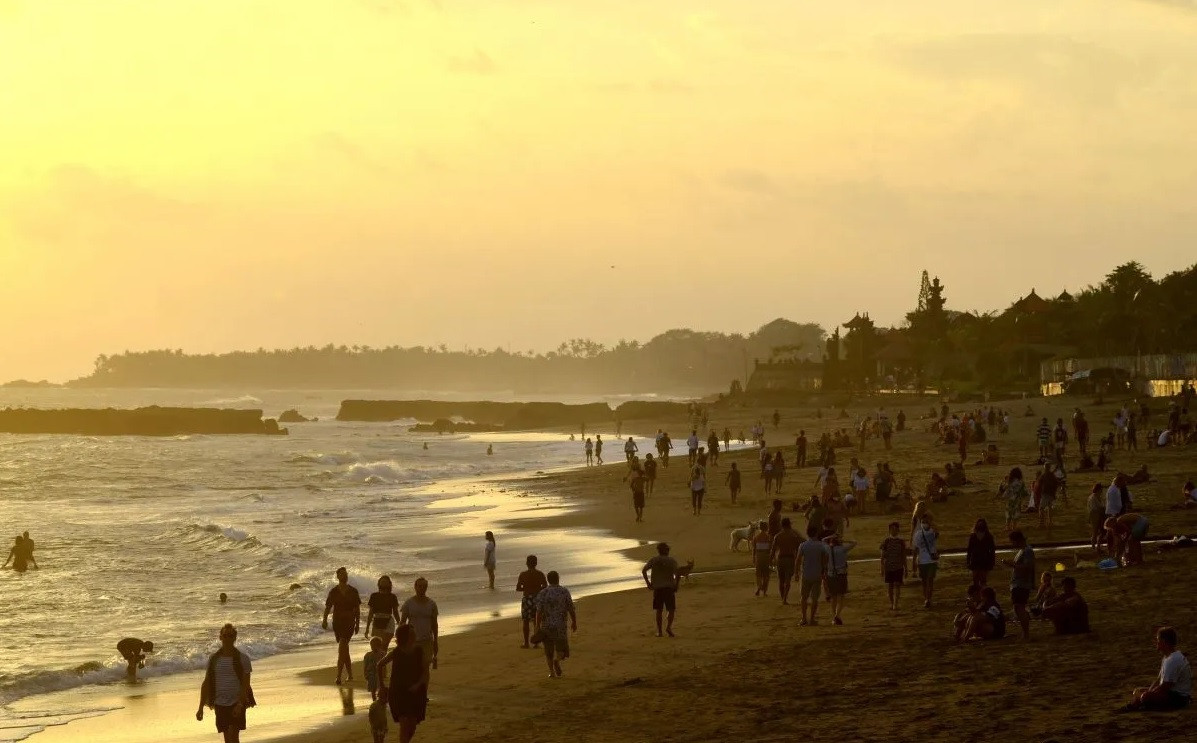Popular Reads
Top Results
Can't find what you're looking for?
View all search resultsPopular Reads
Top Results
Can't find what you're looking for?
View all search resultsBali tourism operators oppose higher tax for spas, nightclubs
Tourism operators in Bali have strongly opposed the government’s new policy that increases tax for entertainment, which will hit businesses such as nightclubs, bars and spas.
Change text size
Gift Premium Articles
to Anyone
T
ourism operators in Bali have strongly opposed the government’s new policy that increases taxes on places of entertainment, which they say will hit businesses such as nightclubs, bars and spas.
The new policy, which came into effect this month, has increased the tax from 15 percent to between 40 and 75 percent.
Bali tourism stakeholders claimed the policy was a new threat to the resort island’s tourism, fearing many foreign tourists could switch their vacations to other tourism destinations across the world that offer more realistic prices.
IGN Rai Suryawijaya, chairman of the Badung Branch of the Indonesia Hotel and Restaurant Association (PHRI Badung), told reporters on Monday that the tax should not be imposed. “The tax will kill us,” the hotelier said after a meeting that was attended by tourism stakeholders, including night club owners, in Canggu, Badung.
The Indonesian Tourism Industry Board (GIPI) is planning to petition the Constitutional Court for a judicial review of the tax hike as regards Article 58, Paragraph 2 of Law No. 1/2022, which stipulates a rate of between 40 and 75 percent for specific goods and services tax (PBJT) on entertainment services, starting at the beginning of this year.
“We agreed to delay the payment of the tax based on the new law. We will wait for the judicial review process,” Rai said. He further added that a rate of 15 percent was reasonable.
Nightclub owner and lawyer Hotman Paris said that the high tax tariff would force most businesses in Bali to close as the island loses out to other destinations such as Thailand and Dubai.
“Thailand only imposes a 5 percent tax. Meanwhile in Dubai, the top tourism destination, the alcoholic beverage tax is zero,” Hotman claimed.
Separately, Bali spa business owners have drafted a petition to reject the new policy. The group Save Bali Spas insisted that the policy was wrong.
“Spas should not be categorized as entertainment and on the same level as nightclubs, bars and discotheques. Spas are a health and wellness facility,” Save Bali Spas initiator I Gusti Ketut Jayeng Saputra said.
Indonesia imposes a higher entertainment tax than its neighbors.
Malaysia applies an entertainment tax of 25 percent, but Kuala Lumpur imposes a reduced rate of 10 percent for international performances, a decision that sparked debate among local artists in Malaysia, according to an October 2023 report by The Star.
Meanwhile, Thailand reportedly lowered its entertainment tax from 10 to 5 percent early this year in a bid to attract more tourists to the second-largest economy in Southeast Asia, where tourism is a major contributor. The country met its 2023 target of 28 million tourists to generate 1.2 trillion baht (U$34.2 billion), Singapore’s The Business Times reported, citing government data.
Separately on Monday, Tourism and Creative Economy Minister Sandiaga Uno told reporters in Jakarta that it would be better for everyone to wait for the judicial review and to avoid making a fuss, which could reflect negatively on Indonesian tourism.
"I’m worried that if we continue to escalate this [entertainment tax issue], tourists might perceive the situation in Indonesia as non-conducive. It’s important [to keep calm], because we’re in the spotlight after [our tourism] managed to recover,” he said. “I want to ensure that the narrative about [Indonesian] tourism remains positive.” (dre)











